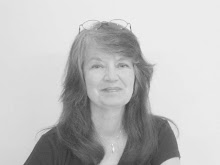 A huge battered trunk and a picture of her in her casket at age 49 were the only tangible remains of a grandmother I never knew. Her first name was either Tenki, Tonya, Tatiana or Tatyana. Her last was Charney, but I don’t know if that was her maiden or first married name. She arrived at Ellis Island in 1911 from Russia to begin a better life, leaving behind an older man, her husband through an arranged marriage, who mistreated her.
A huge battered trunk and a picture of her in her casket at age 49 were the only tangible remains of a grandmother I never knew. Her first name was either Tenki, Tonya, Tatiana or Tatyana. Her last was Charney, but I don’t know if that was her maiden or first married name. She arrived at Ellis Island in 1911 from Russia to begin a better life, leaving behind an older man, her husband through an arranged marriage, who mistreated her.
In 1913, without a divorce, she met and married Michael, also a Russian immigrant who came to America in 1912. They settled in Madison, Illinois. Having six children over a span of fourteen years, my mother was their fourth-born. Their home was a small two-bedroom house. My grandfather worked as a carpenter for the railroad while my grandmother labored at a typically male job in a slaughter house and meatpacking company all the while they raised their children, burying their two oldest daughters when they were barely out of their teens.
As a child and now as an adult, I long to know more about her. My mother was tight-lipped and often changed the subject when I sought answers, although she did tell me that my grandmother saw a mermaid from the ship when she crossed the Atlantic en route to America. Through the years I learned that my grandmother raised goats and geese in their small backyard, played the accordion, made root beer, and sent her children to the movie theater every Saturday when she did housework. I was told that she was very artistic, but no one in the family kept any of her work. Both my mother and her younger brother were talented artists. My uncle was a cartoonist for major magazines before he became an aeronautical engineer. High intelligence and its oft-downside, mental illness, also passed down through the genes.
I like to identify with my grandmother because she was a risk-taker. My mother who never went far from her home in a tiny town, who chose to never drive a car again after her first fender-bender and who wouldn't hear of my father leaving his $90 a week factory labor job to start his own business, was about as far from being a risk-taker as one can get.
Russian was my grandmother’s first and only language, unless you count “whatchamacallit” her often used word in English. She died of a heart attack when my mother was 19 years old and three months after I was born, leaving a 16-yr old daughter and 14-year and 22-year old sons. Three years later a heart attack claimed my grandfather's life. Being their first grandchild, it was expected that I would be a boy. It seems she never got over her disappointment. Instead of calling me Peggy, she referred to me with Russian words meaning “worthless, no-count.” Apparently I didn’t matter to her, but she has always mattered to me.
I only knew her through my mother’s view. My mother insisted that the only picture she had of her mother was the one taken in her casket. After my mother’s death, among her possessions we found snapshots and studio photos taken through the years when my mother was a child. My aunt recognized a photo of my grandmother (shown above) as the one taken when she was age 19, shortly before leaving for America.
I longed to know my grandmother’s mind. I wished for a letter or something she had written, but nothing was found. That’s why Tom Barker’s poem, Tempus Fugit, is so meaningful to me when he speaks of bringing back memories, writing it all down to let someone enjoy. It’s too late when they’ve gone to the grave. Thank you, Mr. Barker, for saying it so beautifully. You have motivated me to write this blog so that my grandchildren, whom I may never know, will have a chance to know me.
Saturday, February 23, 2008
FROM RUSSIA WITHOUT LOVE
Labels:
Artistic,
Grandfather,
Grandmother,
Grandparent,
Immigrant,
Memories,
Mermaid,
Russia
Subscribe to:
Post Comments (Atom)




No comments:
Post a Comment